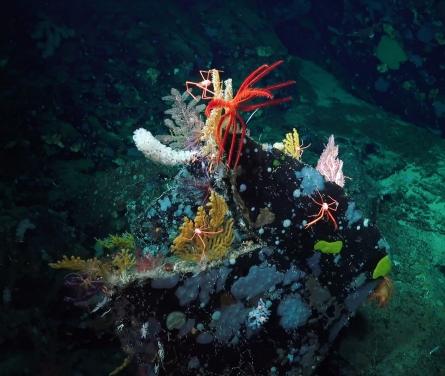HKU marine ecologist and international team identifies areas of top priority for deep-sea monitoring and conservation through a survey of world’s leading deep-sea scientists

Credit: Lisa Levin
To classify the most important ecological and biological components of the deep sea, an international team including Professor Roberto Danovaro from Stazione Zoologica Anton Dohrn Napoli, Italy and Dr Moriaki Yasuhara from The Swire Institute of Marine Science (SWIMS) and School of Biological Sciences, The University of Hong Kong (HKU) sent a questionnaire-based survey to the world’s leading deep-sea scientists around the world. They then analysed the responses received from 112 scientists so as to create an expert-led list of priorities covering all aspects of deep-sea monitoring, conservation and management.
The results of the survey are presented in a Perspective in the leading journal Nature Ecology & Evolution, identifying key areas on which future conservation and management strategies should be focused. The article highlights priorities for monitoring, including large animals and habitat-forming species like deep-sea corals, and the impact of human activities such as mining on this vulnerable ecosystem.
The deep sea (defined here as below 200-metre depth) represents the largest, but least explored, type of environment, or biome, on Earth. It is home to many ecologically rare, unique and unknown species that are increasingly under multiple threats from industrial deep-sea mining, deep-sea fishing, climate change and plastic pollution.
The results of the survey indicated that habitat-forming species such as deep-sea corals were considered the most important area for conservation efforts. Large and medium-bodied organisms were considered the top priority for biodiversity monitoring in deep-sea habitats. Other equally significant factors for monitoring the deep-sea environment include habitat degradation and recovery as a measure of ecosystem health, and classification of the food-web structure of deep-sea communities to monitor the functioning of whole ecosystems. Identifying shifts in the depth ranges of different species was also a priority for monitoring responses to climate change.
“People tended to think deep sea is immune from human impacts or climate changes but scientific studies have been proving that it is untrue. Indeed, a better and standardised monitoring framework to prepare and manage for future is needed,” said Dr Yasuhara. South China Sea is, of course, not an exemption from the threats. SWIMS is an Asian hub of marine conservation and contributes to global deep-sea issues, for example, through this global collaborative paper and also through the ongoing 2nd World Ocean Assessment led by United Nations.
“The results are useful as a guideline for future deep-sea research, conservation and monitoring. The endorsements and adoptions of the proposed deep-sea essential ecological variables by industry, governments and non-governmental organisations would also help guide more sustainable management of oceans,” the authors concluded.
###
The paper:
‘Ecological variables for developing a global deep-ocean monitoring and conservation strategy’ in Nature Ecology & Evolution by Roberto Danovaro and collaborators including Moriaki Yasuhara.
Link of journal paper: https:/
For more information about Dr Moriaki Yasuhara’s research, please visit:
https:/
Media Contact
Cindy Chan
[email protected]
852-391-75286
Original Source
https:/




